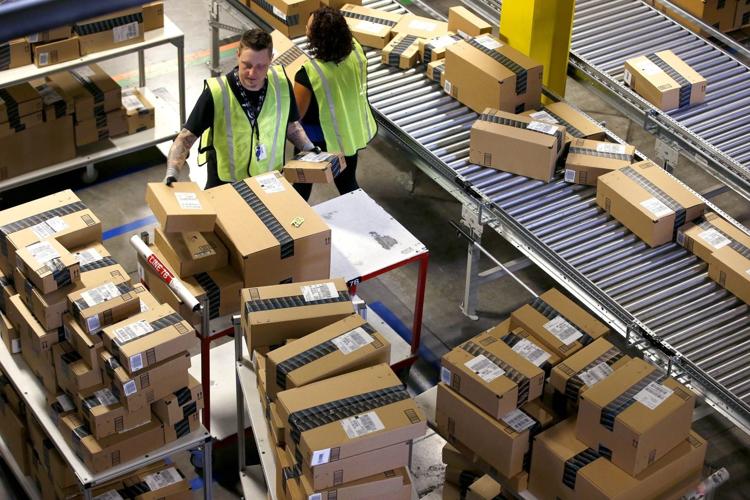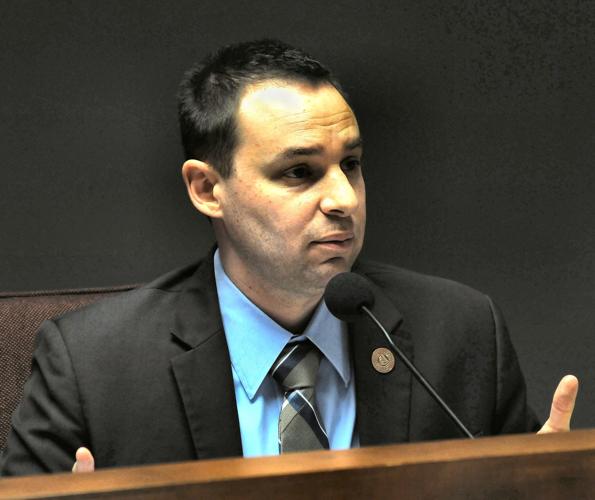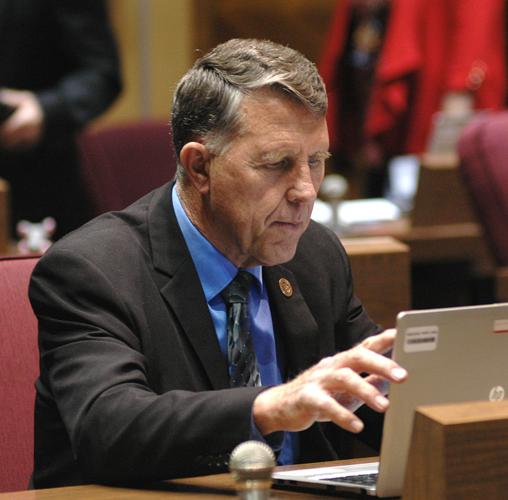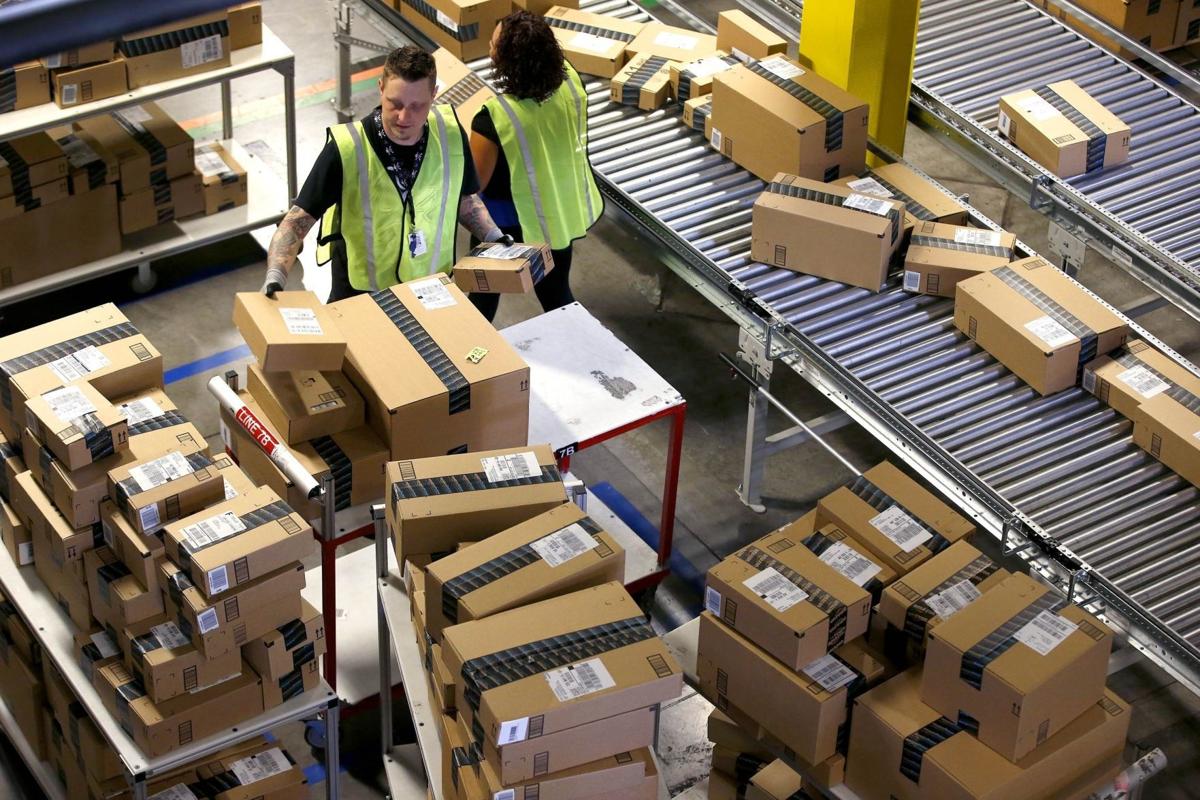PHOENIX — Key Arizona lawmakers want to take advantage of a new U.S. Supreme Court ruling that lets states collect online sales taxes.
But they don’t want it to be a new burden on taxpayers here — and that means cutting taxes somewhere else.
The ideas they are discussing range from lowering the state’s 5.6 percent sales tax rate, to trimming income taxes for corporations or individuals.
House Speaker J.D. Mesnard told Capitol Media Services he sees no reason why purchases made by Arizonans on the internet should be exempt from the state’s current sales tax while local brick-and-mortar retailers are forced to collect the levy.
“We haven’t had the authority before now,” the Chandler Republican said.
That changed on June 21 when the nation’s high court ruled that South Dakota could enforce its law requiring many out-of-state businesses to collect taxes on sales to local residents.
Before that, courts had said sales taxes could apply only to businesses with a physical “nexus” to a state, whether that meant having local retailers, offices or warehouses.
That’s why Amazon in 2012 agreed to begin collecting sales taxes in Arizona after state revenue officials began proceedings against the company based on the fact it has “fulfillment centers” in the state. That deal settled the $53 million assessment against the company that had been made by the state Department of Revenue.
Similarly, it’s because of the physical presence of stores in the state for companies such as Walmart and Target that Arizonans purchasing from their websites end up paying the same state sales taxes as they do in the stores.
Amazon does not, however, collect Arizona’s sales tax on behalf of its network of third-party retailers.
Purchases from other online retailers with no clear links to the state have gone untaxed because of that “nexus” rule — the one the Supreme Court threw out.
Hundreds of millions of dollars
How much money is at stake is unclear.
In a report last year, before the court ruling, the federal Government Accountability Office estimated that state and local governments could pick up another $8 billion to $13 billion a year by taxing online sales.
The agency’s predictions for Arizona, both at the state and local levels, ranged from $190 million to $293 million a year, though some of that would go to cities and counties, both in the form of shared state revenues and local levies.
But if state-only dollars increase by just 2 percent — the lower end of the GAO prediction of untaxed sales — that still amounts to an additional $94 million a year into the Arizona treasury.
Sen. David Farnsworth, R-Mesa, who chairs the Senate Finance Committee, said he is interested in Arizona getting its share of taxes from online sales. But Farnsworth told Capitol Media Services that implementing such a change is “a very delicate question.”
Cutting other taxes under discussion
The key is what Arizona would do with any new revenues.
“I have always been one to consider if we can lower taxes in one place and broaden the base, it’s not a bad idea,” Farnsworth said.
“If we decided to add a tax, then we would want to reduce taxes somewhere else,” he said. The trick, said Farnsworth, is figuring out how to do that — and in a fair way.
His preference: Cut income taxes. But Farnsworth said he is divided as to whether that should reduce the corporate levy, which already has been cut by close to a third in the past decade, or trim individual income tax rates.
Mesnard shares that desire for a net neutral overall tax burden.
“I have never advocated from the perspective of taking more from taxpayers,” he said.
Mesnard said that new — and unexpected — revenues provide opportunities to consider how to reform the overall tax structure of the state.
But he’s not sure whether that should involve cutting overall income tax rates, increasing deductions or perhaps lowering the sales tax rate.
“That’s a level that hasn’t been developed because, up until now, this really wasn’t a reality,” Mesnard said.
Tax other digital purchases?
The question for lawmakers is not limited to whether to tax internet sales, said Rep. Michelle Ugenti-Rita, R-Scottsdale. She said the state needs to look at the larger question of digital goods that also are purchased online.
Earlier this year, she shepherded a bill through the House to forbid the state from imposing its sales tax on everything from digital books and videos to cloud-based software, online storage and web-hosting services.
Ugenti-Rita, who chairs the House Ways and Means Committee, said the state needs clarity on what is and is not taxable. The state Department of Revenue and individual cities have been less than forthcoming, she said, in providing details. She said if lawmakers don’t set down some clear rules, the courts will intercede.
Her measure, however, failed to clear the Senate.
Governor undecided
Republican Gov. Doug Ducey has reached no conclusion on whether Arizona law should be altered to permit taxation of internet sales, much less what the state should do with any additional revenues, said his press aide Daniel Scarpinato.
The problem starts with the lack of information, he said: “It’s very much a hypothetical.”
First is the question of whether the Republican-controlled Legislature, which isn’t in session again until January, would approve expanding the tax base to include online sales. And then there’s the numbers game.
“Having seen numerous estimates on these kinds of things over the years, it’s very difficult for us to know what kind of revenue we would actually see,” Scarpinato said.
He said Ducey does have some philosophical touchstones on the question.
“He doesn’t want Arizonans to pay more taxes,” Scarpinato said.
If there are new revenues, Scarpinato said the governor would want to take a closer look at how to allocate those dollars.
“Any time we make a change, we want to do it through a prism of, are we improving the overall tax code and making it simpler?” he said.
Other states are acting
Several states already are on track to cut taxes to compensate for new revenues from online sales taxes.
A 2016 South Dakota law that raised the state sales tax half a percent, to 4.5 percent, requires that rate to be reduced by one-tenth of a percent for every additional $20 million the state collects from internet sales, The Associated Press reports.
Wisconsin has a 2013 law requiring a dollar-for-dollar cut in state income taxes if that state can collect revenues from online sales.











